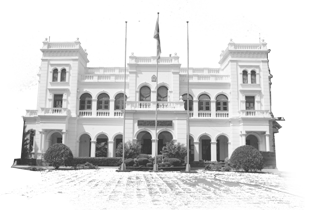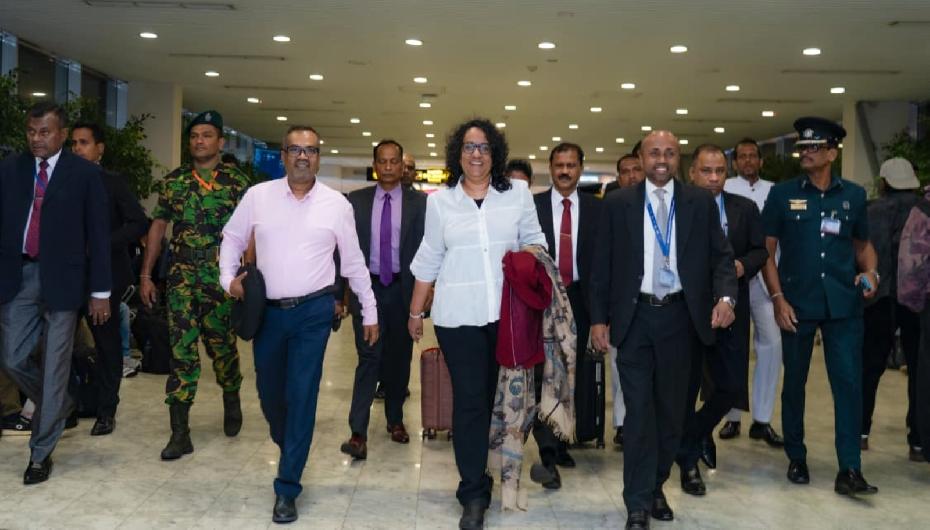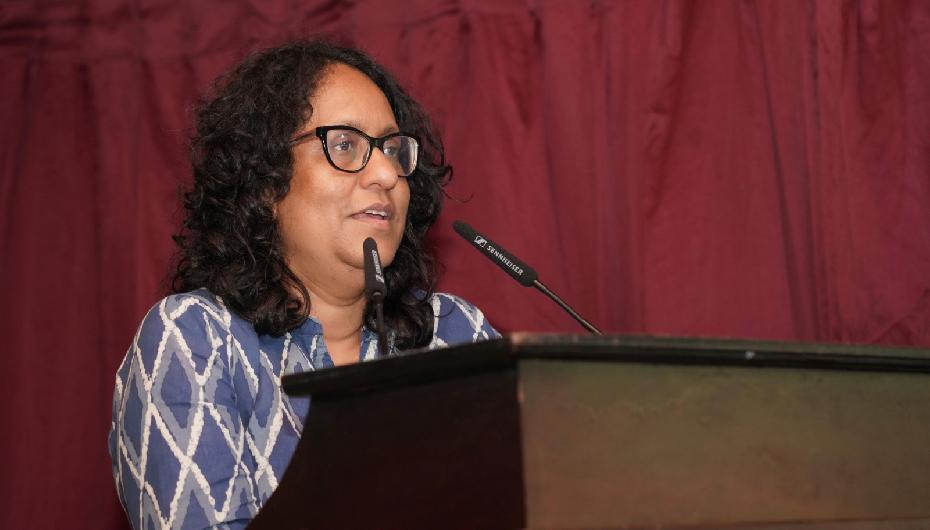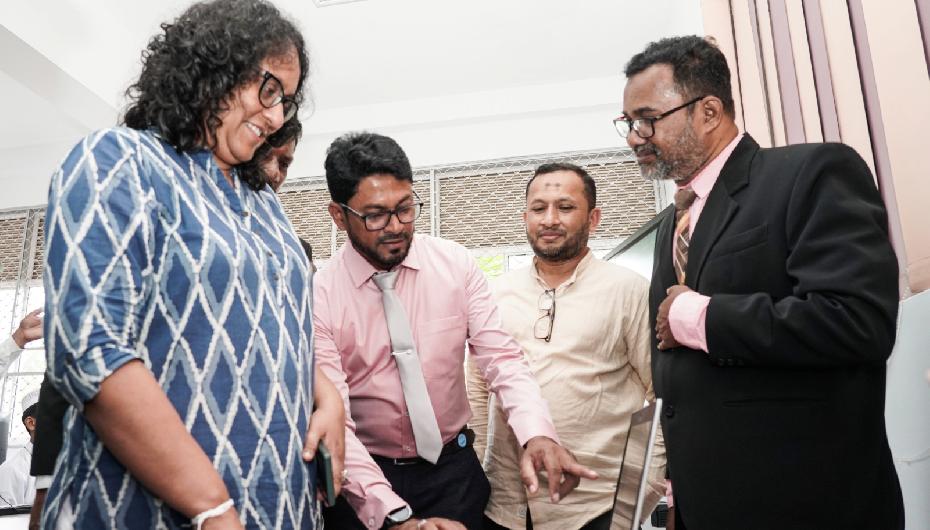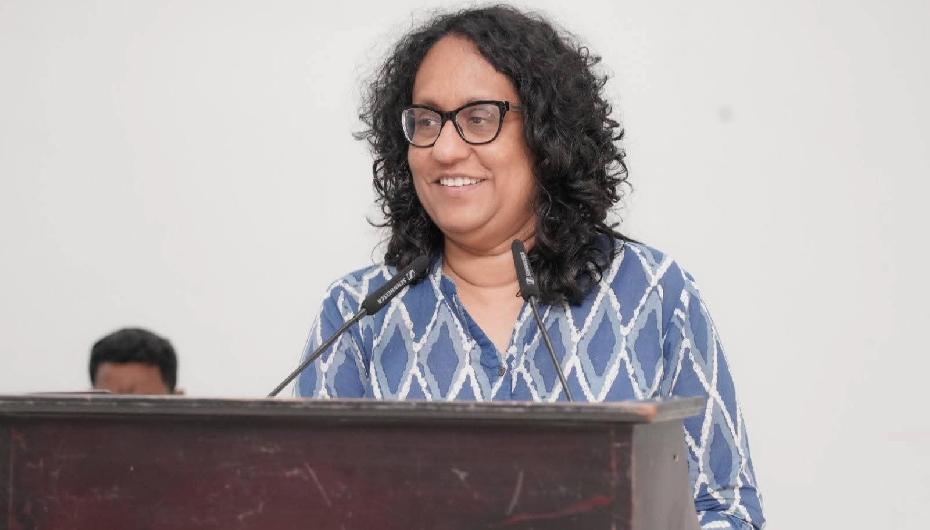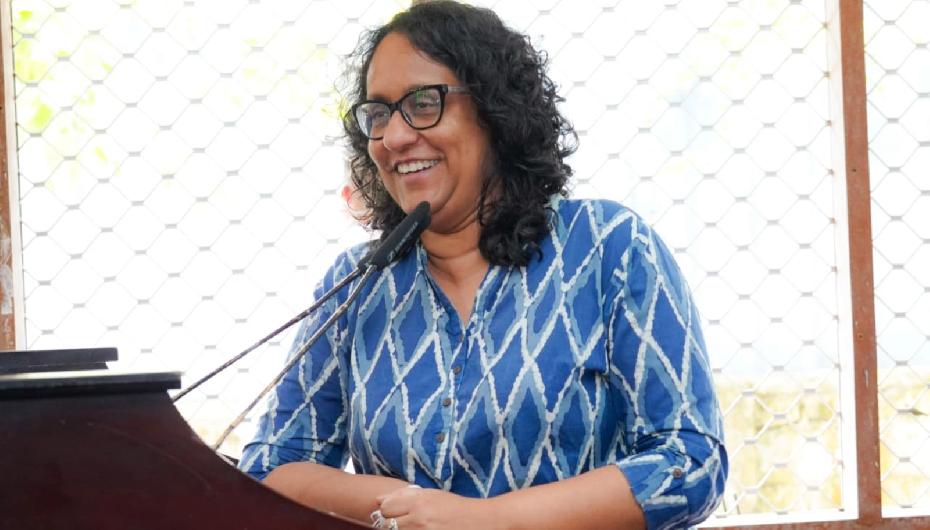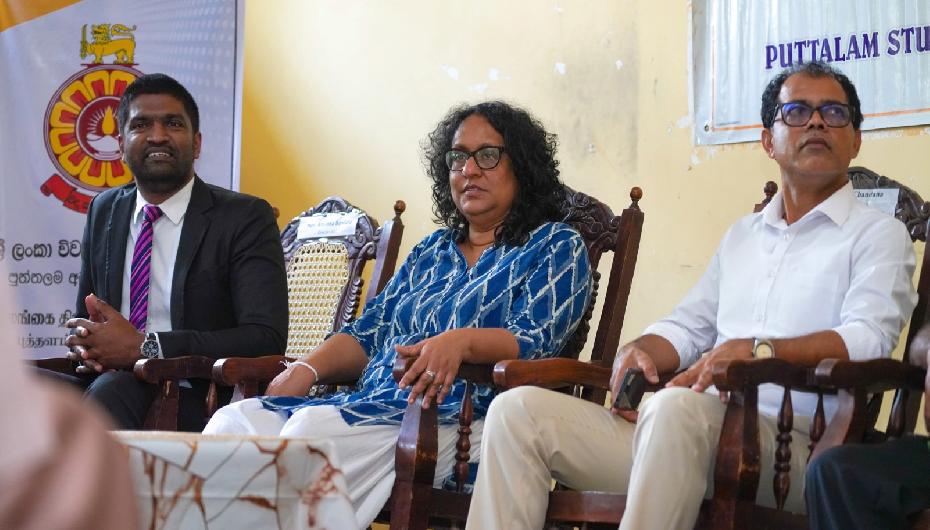We are creating an education system that is not a burden on either parents or children.
We appreciate the sacrifices parents make to provide their children with a quality education, recognizing the importance of quality education.
Prime Minister Dr. Harini Amarasuriya stated that the government is committed to creating an education system that does not place a burden on either parents or children, and that it is appreciable the sacrifices made by parents to provide their children with a quality education, while fully recognizing the importance of quality education.
The Prime Minister made these remarks while participating in an inspection visit to Velasiya Government College, Puttalam located in the Madurankuliya on the 17th of January, alongside the meetings with education authorities of the Puttalam District and inspections of schools.
During the visit, the Prime Minister laid the foundation stone for the construction of a teachers’ quarters building, which had long been a fundamental requirement of the school.
On this occasion, the Prime Minister also presented awards to a group of students who had received All-Island awards.
Addressing the occasion, the Prime Minister stated:
The era in which the standard of education was determined by the type of school, the size of the school, or the region to which the school belongs has come to an end, and under the new education reforms, technological equipment will be provided to schools and students will be introduced to a technology-oriented learning model while implementing them in line with child protection policies. The teachers will be made aware of these aspects through systematic teacher training programmes by the Ministry of Education.
Steps will be taken to eliminate technological disparities between schools, and that the government is committed to treating all children equally considering them as its own, while working to eliminate both educational and social inequalities that exist among children.
Parents in our country understand the value of education. They dedicate all their resources to providing their children with a quality education. We initiate eliminating the educational inequality through the new education reforms. I believe that this initiative will support parents’ efforts to build a better future for their children.
Under the previous education system, the continuity of education for students in schools in remote areas depended on the skills and dedication of the teachers serving in those schools. However, through these new education reforms, the disparity between rural and urban schools will be eliminated, and the long-standing practice of labeling schools as remote schools will be brought to an end.
In line with the government’s new national policy, the country being built for the future requires children with diverse skills across various sectors. All necessary budgetary allocations to develop the required human resources have already been finalized.
We are creating an education system that does not place a burden on parents or children. I appreciate the dedication of parents who make great sacrifices to ensure their children receive a quality education while recognizing the importance of education.
The event was attended by the Minister of Public Administration, Provincial Councils and Local Government, Prof. A.H.M.H. Abayarathna; Members of Parliament representing the Puttalam District; the Secretary of Education of the North Western Province; other education directors; the Principal and teachers of Puttalam Velasiya Government College; as well as parents.
Prime Minister’s Media Division


